![]()
A Brief History of Evolutionary Spirituality
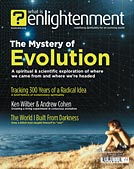
"Writing in the first half of the 20th century, Bergson and Teilhard, in particular, are notable for taking the scientific understanding of evolution and running with it, tracing the development of the Divine through the cosmological, biological, psychosocial, and transcendent domains. Bergson's Creative Evolution, published in 1907, became a popular bestseller for its lucid, stream-of-thought consideration of the motive force behind the evolutionary process, which Bergson identified as consciousness itself. And Teilhard's masterwork, The Human Phenomenon, equally based its speculations on science, while emphasizing the back-and-forth interplay of individuality and collectivity over the course of cosmic history. Specifically, Teilhard saw the potential for human beings, like molecules and bacteria before them, to come together in a higher integration or"megasynthesis"of a new evolutionary potential. He wrote: "The way out for the world, the gates of the future, the entry into the superhuman, will not open ahead to the privileged few, or to a single people, elect among all peoples. They will yield only to the thrust of all together (even if it were from the influence and guidance of an elite) in the direction where all can rejoin and complete one another in a spiritual renewal of the Earth.” "
A Brief History of Evolutionary Spirituality
by Tom Huston
Evolution has always been a fundamentally spiritual concept. In fact,
some of the first thinkers to seriously explore the topic—the German
Idealists of the early 19th century—were mystic-philosophers who
predated Darwin's Origin of Species by at least half a century.
Writing in the year 1799, the 24-year-old philosophical wunderkind
Friedrich Schelling summarized in a single sentence the profoundly
original insight that was exciting him as well as his philosophical
contemporaries (men like Immanuel Kant, J.G. Fichte, and Georg
Hegel): "History as a whole," he wrote," is a progressive, gradually
self-disclosing revelation of the Absolute.”
In other words, long before the Western worldview was shaken by
theories of biological development by means of natural selection, a
tour de force of metaphysical geniuses had already intuited that
reality as a whole was, in some essential way, going somewhere.
Nature—and humanity—had a purpose and a direction. And that direction
was, as Hegel put it, towards ever-greater expressions of"universal
Spirit"within the realm of time and space.
Combining their mystical intuitions with the"clear light of reason,"
the Idealists bridged the gap between God and humanity, between the
transcendent and the immanent, forging a uniquely Western conception
of human purpose and meaning. No longer were human beings seen to be
simply adrift in a state of sin and suffering, having"fallen"Away
from the presence of God in the primordial past; instead, God was now
understood to be in humanity's future, to be revealed in the world,
with increasing depth and clarity, as human history marched forward
and consciousness evolved.”God does not remain petrified and dead,"
said Hegel.”The very stones cry out and raise themselves up to
Spirit.”
Echoing that sentiment almost two centuries later, the American
philosopher Ken Wilber wrote: "Both humans and rocks are equally
Spirit, but only humans can consciously realize that fact, and
between the rock and the human lies evolution.”And in the span
between Wilber and Hegel reigned numerous champions of this
revolutionary concept of"spiritual evolution"In both the East and
the West. Foremost among these were the Indian philosopher-sage Sri
Aurobindo, the French philosopher Henri Bergson, and the French
paleontologist and Catholic priest Pierre Teilhard de Chardin. Other
key figures included the American essayist and lecturer Ralph Waldo
Emerson, the Austrian theosophical visionary Rudolph Steiner, and the
German integral theorist Jean Gebser.
Writing in the first half of the 20th century, Bergson and Teilhard,
in particular, are notable for taking the scientific understanding of
evolution and running with it, tracing the development of the Divine
through the cosmological, biological, psychosocial, and transcendent
domains. Bergson's Creative Evolution, published in 1907, became a
popular bestseller for its lucid, stream-of-thought consideration of
the motive force behind the evolutionary process, which Bergson
identified as consciousness itself. And Teilhard's masterwork, The
Human Phenomenon, equally based its speculations on science, while
emphasizing the back-and-forth interplay of individuality and
collectivity over the course of cosmic history. Specifically,
Teilhard saw the potential for human beings, like molecules and
bacteria before them, to come together in a higher integration
or"megasynthesis"of a new evolutionary potential. He wrote: "The
way out for the world, the gates of the future, the entry into the
superhuman, will not open ahead to the privileged few, or to a single
people, elect among all peoples. They will yield only to the thrust
of all together (even if it were from the influence and guidance of
an elite) in the direction where all can rejoin and complete one
another in a spiritual renewal of the Earth.”
Yet it was the work of the great Sri Aurobindo that, while following
a similar thread to Bergson and Teilhard, brought an entirely new
dimension to this burgeoning field— namely, translating the concept
of spiritual evolution into a spiritual practice. After completing
his studies in literature and philosophy at Cambridge in 1892, he
became a leading figure in the Indian independence movement and was
declared"The most dangerous man alive"by the British Empire, but
eventually left the freedom fight to devote his life to exploring
liberation of an altogether different kind. After experiencing a deep
spiritual awakening, Aurobindo's consciousness opened onto a vision
of human possibilities that saw the attainment of nirvana—typically
held to be the goal of all mystical pursuits—as merely the beginning
of a personal engagement with the evolutionary force that has been
driving the cosmos forward since the dawn of creation. Leading his
spiritual community in the practice of"Integral yoga," Aurobindo was
the first to synthesize the modern understanding of evolution with
the timeless revelation of enlightenment, and pioneered the idea that
human beings are capable of aligning their lives with the trajectory
and purpose of the universe itself.
Today, the notion that the evolutionary process is ultimately driven
by a spiritual impulse is more popular and widely accepted than ever,
with a growing number of progressive thinkers, scientists, and
mystics exploring its implications. Yet to many it still remains
little more than an alluring philosophy, its ultimate significance
divorced from our daily lives. What would a human life based on the
principles of an"evolutionary spirituality"look like? Freed from
the mythic dogmatisms of premodern religion, transcending the
materialistic biases of modern scientific thought, and liberated also
from the narcissistic self-obsessions of postmodern spirituality,
what kind of world might a universal, evolutionary spirituality—or a
truly twenty-first century religion—create? As one of the few
pioneers in this nascent field who is attempting to put the
philosophy into real-world practice through his teachings of
Evolutionary Enlightenment, Andrew Cohen is endeavoring to find out.
http://www.andrewcohen.org/teachings/history-evolutionary-spirituality.asp

G. W. Leibniz
G. W. Leibniz 1646-1716
“A cumulative increase of the beauty and universal perfection of the works of God, a perpetual and unrestricted progress of the universe as a whole must be recognized, such that it advances to a higher state of cultivation.... As for the objection which may be raised, that if this is true the world will at some time already have become paradise, the answer is not far to seek: even though many substances shall have attained to a great degree of perfection, there will always, on account of the infinite divisibility of the continuum, remain over in the abyss of things parts hitherto dormant, to be aroused and raised to a greater and higher condition.... And for this reason progress will never come to an end.... (I flatter myself that I have some ideas of these truths; but this age is not prepared to receive them.)"
(De rerum originatione radicali, 1697)
G. W. Leibniz — A German philosopher, mathematician, scientist, diplomat, and lawyer, best known for his contributions to the modern calculus.

Immanuel Kant Immanuel Kant 1724-1804
"The fruitfulness of Nature is without limits, since it is nothing but the exercise of the Divine Omnipotence.... Even in the essential properties of the elements [in the original condition of Nature], there could be traced the mark of that completeness which they derive from their origin, inasmuch as their nature is but a consequence of the eternal Idea of the Divine Intelligence. The matter which appears to be merely passive and without form and arrangement has even in its simplest state an urge to fashion itself by a natural evolution into a more perfect constitution.”
(Allgemeine Naturgeschichte, 1755)
Immanuel Kant — This renowned German philosopher of morals and metaphysics laid many of the foundations of modern philosophy.
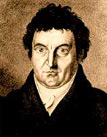
J. G. Fichte 1762-1814
"In the human species, spirit constantly develops by means of this struggle of one spirit with another. Thus the whole species becomes richer in spirit. In the first crude attempt [at spiritual communication] the spirit of future ages is already preparing itself. With this help it is able to develop further than those who made the original attempt and will pass on a more perfect presentation, to be further improved by those who follow, who will in turn pass on an even more perfect one. In the earliest recorded ages mankind had already progressed a long way in this spiritual development. You can ascertain the present level of this progress simply by looking around you, and as your own self-development proceeds you will be able to see it even more perfectly.... The first person who asked a question about the existence of God broke through the boundaries; he shook mankind to its deepest foundations and brought man into a conflict with himself which has not yet been resolved and which can only be resolved by proceeding boldly to that supreme point from which the practical and the speculative appear as one.”
(The Spirit and the Letter within Philosophy, 1794;"Letter to Jacobi," 1795)
J. G. Fichte — A follower and re-interpreter of the philosophy of Kant, Fichte proposed that the external world is ultimately consciousness itself.
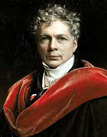
Friedrich Schelling 1775-1854
"Has creation a final goal? And if so, why was it not reached at once? Why was the consummation not realized from the beginning? To these questions there is but one answer: Because God is Life, and not merely Being. All life has a destiny, and is subject to suffering and to becoming. To this, then, God has of his own free will subjected himself.... Being is sensible only in becoming. In Being as such, it is true, there is no becoming...rather, it is itself posited as Eternity. But in the actualization (of Being) through opposition there is necessarily a becoming. Without the conception of a humanly suffering God...history remains wholly unintelligible.”
(Philosophical Inquiries Into the Nature of Human Freedom, 1809)
Friedrich Schelling — A university professor at age 23, this German philosophical genius explored the mystical depths of evolution.

Georg Hegel 1770-1831
"That the history of the world, with all the changing scenes which its annals present, is this process of development and the realization of Spirit—only this insight can reconcile Spirit with the history of the world—that what has happened, and is happening every day, is not only not 'without God,' but is essentially God's work.... The power of Spirit is only as great as its expression, its depth only as deep as it dares to spread out and lose itself in its exposition.... Ours is a birth-time and a period of transition to a new era. Spirit has broken with the world it has hitherto inhabited and imagined, and is of a mind to submerge it in the past, and in the labor of its own transformation. Spirit is indeed never at rest but always engaged in moving forward.”
(Phenomenology of Spirit, 1807)
Georg Hegel — Schelling's former schoolmate achieved universal acclaim for his masterful treatises on social and spiritual evolution.
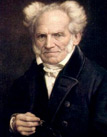
Arthur Schopenhauer 1788-1860
"The law of causality, and the consideration and investigation of nature which follow on it, lead us necessarily to the certain assumption that each more highly organized state of matter succeeded in time a cruder state.Thus animals existed before men, fishes before land animals, plants before fishes, and the inorganic before that which is organic; consequently the original mass had to go through a long series of changes before the first eye could be opened. And yet the existence of this whole world remains for ever dependent on that first eye that opened, were it even that of an insect.... This world is the succession of the representations of consciousness, the form of its knowing, and apart from this loses all meaning, and is nothing at all.”
(The World As Will and Representation, 1819-1844)
Arthur Schopenhauer — A brilliant German philosopher and arch-nemesis of Hegel who combined Eastern mysticism and Kantian idealism.

Ralph Waldo Emerson 1803-1882
"There is a kind of latent omniscience not only in every man but in every particle...the same original power which works remotely in grandest and meanest structures by the same design, —works in a lobster or a miteworm as a wise man would if imprisoned in that poor form. 'Tis the effort of God, of the Supreme Intellect, in the extremest frontier of his universe. As this unity exists in the organization of insect, beast and bird, still ascending to man, and from lower type of man to the highest yet attained, so it does not less declare itself in the spirit or intelligence of the brute. In ignorant ages it was common to vaunt the human superiority by underrating the instinct of other animals; but a better discernment finds that the difference is only of less and more.... 'Tis a long scale from the gorilla to the gentleman from the gorilla to Plato, Newton, Shakespeare— to the sanctities of religion, the refinements of legislation, the summits of science, art and poetry. The beginnings are slow and infirm, but it is an always accelerated march. The geologic world is chronicled by the growing ripeness of the strata from lower to higher, as it becomes the abode of more highly-organized plants and animals.... Once men thought Spirit divine, and Matter diabolic.... Now science and philosophy recognize the parallelism, the approximation, the unity of the two: how each reflects the other as face answers to face in a glass, nay, how the laws of both are one, or how one is the realization. We are learning not to fear truth.”
("The Sovereignty of Ethics," 1878)
Ralph Waldo Emerson — One of America's most influential thinkers, essayists, and public speakers, Emerson also explored the rising tides of evolutionary theory.
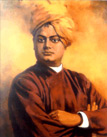
Swami Vivekananda 1863-1902
"This involution and evolution is going on throughout the whole of nature. The whole series of evolution, beginning with the lowest manifestation of life and reaching up to the highest, the most perfect man, must have been the involution of something else. The question is: The involution of what? What was involved? God.... At the beginning that intelligence becomes involved, and in the end that intelligence gets evolved. The sum total of the intelligence displayed in the universe must, therefore, be the involved universal intelligence unfolding itself. This universal intelligence is what we call God. Call it by any other name, it is absolutely certain that in the beginning there is that Infinite cosmic intelligence. This cosmic intelligence gets involved, and it manifests, evolves itself, until it becomes the perfect man, the 'Christ-man,' the 'Buddha-man.' Then it goes back to its own source.”
(The Complete Works of Vivekananda)
Swami Vivekananda — One of the most influential Hindus of modern times, this Indian mystic was instrumental in bringing Eastern spirituality to the West.
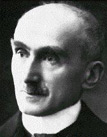
Henri Bergson 1859-1941
"The whole history of life until man has been that of the effort of consciousness to raise matter, and of the more or less complete overwhelming of consciousness by the matter which has fallen back on it.... With man, consciousness breaks the chain. In man, and in man alone, it sets itself free.... From our point of view, life appears in its entirety as an immense wave which, starting from a center, spreads outwards, and which on almost the whole of its circumference is stopped and converted into oscillation: at one single point the obstacle has been forced, the impulsion has passed freely. It is this freedom that the human form registers. Everywhere but in man, consciousness has had to come to a stand; in man alone it has kept on its way.... [Thus], not only does consciousness appear as the motive principle of evolution, but also, among conscious beings themselves, man comes to occupy a privileged place. Between him and the animals the difference is no longer one of degree, but of kind.”
(Creative Evolution, 1907)
Henri Bergson — This French philosopher's passion for spiritual evolution won him wide public acclaim and the Nobel Prize for literature.

Rudolph Steiner 1861-1925
"To live by [great] worldviews and philosophies means to work on perfecting ourselves spiritually. Only when we do this do we serve the cosmos as a whole. To perfect oneself in this way is by no means selfish. As long as we are imperfect human beings, we are also imperfect servants of humanity and the world. The more perfected we are, the better we can serve the whole. The saying, 'If a rose is beautiful, it makes the garden beautiful,' is also true of human beings. The founders of the greatest philosophies are therefore great initiates. Their teachings flow into human souls and by this means the whole world advances with humanity. Indeed, they worked consciously for the progress of human evolution. Thus we can understand the content of their teachings only when we bear in mind that it is drawn from knowledge of the inmost depths of human nature. The initiates were great gnostics, seekers after knowledge—they knew—and they shaped humanity's ideals out of their knowledge. We, too, can approach these great leaders of humanity if, in our own development, we seek to raise ourselves to their heights.”
(How to Know Higher Worlds, 1904)
Rudolph Steiner — This Austrian philosopher, occultist, architect, social theorist, and author produced volumes on the spiritual evolution of humanity.
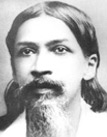
Sri Aurobindo 1872-1950
"We speak of the evolution of Life in Matter, the evolution of Mind in Matter; but evolution is a word which merely states the phenomenon without explaining it. For there seems to be no reason why Life should evolve out of material elements or Mind out of living form, unless we accept the Vedantic solution that Life is already involved in Matter and Mind in Life because in essence Matter is a form of veiled Life, Life a form of veiled Consciousness. And then there seems to be little objection to a farther step in the series and the admission that mental consciousness may itself be only a form and a veil of higher states which are beyond Mind. In that case, the unconquerable impulse of man towards God, Light, Bliss, Freedom, Immortality presents itself in its right place in the chain as simply the imperative impulse by which Nature is seeking to evolve beyond Mind.... The animal is a living laboratory in which Nature has, it is said, worked out man. Man himself may well be a thinking and living laboratory in whom and with whose conscious co-operation she wills to work out the superman, the god. Or shall we not say, rather, to manifest God? For if evolution is the progressive manifestation by Nature of that which slept or worked in her, involved, it is also the overt realization of that which she secretly is.... If it be true that Spirit is involved in Matter and apparent Nature is secret God, then the manifestation of the divine in himself and the realization of God within and without are the highest and most legitimate aim possible to man upon earth.”
(The Life Divine, 1914-19)
Sri Aurobindo — This Indian philosopher-sage was the first to combine the concept of spiritual enlightenment with spiritual evolution.
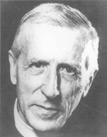
Pierre Teilhard de Chardin 1881-1955
"For invincible reasons of homogeneity and coherence, the fibers of cosmogenesis require to be prolonged in ourselves far more deeply than flesh and bone. We are not being tossed about and drawn along in the vital current merely by the material surface of our being. But like a subtle fluid, space-time, having drowned our bodies, penetrates our soul. It fills it and impregnates it. It mingles with its powers, until the soul soon no longer knows how to distinguish space-time from its own thoughts. Nothing can escape this flux any longer, for those who know how to see, even though it were the summit of our being, because it can only be defined in terms of increases of consciousness. For is not the very act by which the fine point of our mind penetrates the absolute a phenomenon of emergence? In short, recognized at first in a single point of things, then inevitably having spread to the whole of the inorganic and organic volume of matter, whether we like it or not evolution is now starting to invade the psychic zones of the world.... The human discovers that, in the striking words of Julian Huxley, we are nothing else than evolution become conscious of itself. It seems to me that until it is established in this perspective, the modern mind...will always be restless. For it is on this summit and this summit alone that a resting place and illumination await us.... All evolution becomes conscious of itself deep within us.... Not only do we read the secret of its movements in our slightest acts, but to a fundamental extent we hold it in our own hands: responsible for its past and its future.”
(The Human Phenomenon, 1940)
Pierre Teilhard de Chardin — This French paleontologist, philosopher, and priest wrote about the process of spiritual evolution with an unsurpassed scientific rigor.
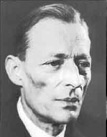
Jean Gebser 1905-1973
"We are convinced that there are powers arising from within ourselves that are already at work overcoming the deficiency and dubious nature of our rational ego-consciousness via the new aperspectival awareness whose manifestations are surging forth everywhere. The aperspective consciousness structure is a consciousness of the whole, an integral consciousness encompassing all time and embracing both man's distant past and his approaching future as a living present. The new spiritual process can take root only through an insightful process of intensive awareness.... Our concern is to render transparent everything latent 'behind' and 'before' the world—to render transparent our own origin, our entire human past, as well as the present, which already contains the future. We are shaped and determined not only by today and yesterday, but by tomorrow as well.”
(The Ever-Present Origin, 1949)
Jean Gebser — A European linguist, poet, and one of the preeminent forefathers of integral psychological and evolutionary theory.

Barbara Marx Hubbard 1929-
"In conscious evolution, our spiritual experience expands to include resonance with the design of evolution. Our spiritual growth awakens our social potential, pressing us deeper inward to pick up that design and outward to express our creativity in the world through vocation. We work from within ourselves toward higher consciousness, greater freedom, and more complex order to effect a change in the world, first and foremost through our personal evolution.... With conscious evolution we are on the threshold of a cocreative spirituality as we learn to attune to the deeper patterns of creation. The lives of great avatars were transformed by resonance with deeper reality. Now, because of the rise of consciousness in ourselves, our lives can also be lifted up, not as saints or seers, but as humans at the next stage of our natural evolution—as imaginal cells, cocreative with the processes of evolution.”
(Conscious Evolution, 1998)
Barbara Marx Hubbard — This American futurist, author, and public speaker is pioneering a new spiritual paradigm called"Conscious Evolution.”
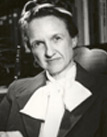
Beatrice Bruteau 1930-
"Everything is making its difference to the whole. No one is ever outside the God-Process. But it goes only where we go with it. It doesn't force us, we are the movers from the inside. It won't go forward unless we move it forward. That is why we are all so important. We cannot wait for the world to turn, for the times to change that we may change with them, for the revolution to come and carry us round in its new course. No more will the evolutionary forces of nature propel us in their groping way through the next critical point into a new state of being. From now on, if we are to have any future, we must create that future ourselves. We ourselves are the future and we are the revolution.”
(What Is Enlightenment? Issue 21, 2002)
Beatrice Bruteau — A student of Hinduism and Catholicism, Bruteau has written numerous books about evolutionary theory and theology.
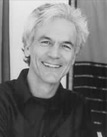
Brian Swimme 1950-
"The primary challenge of this cosmological transformation of consciousness is the awareness that each being in the universe is an origin of the universe. 'The center of the cosmos' refers to that place where the great birth of the universe happened at the beginning of time, but it also refers to the upwelling of the universe as river, as star, as raven, as you, the universe surging into existence anew. The consciousness that learns it is at the origin point of the universe is itself an origin of the universe. The awareness that bubbles up each moment that we identify as ourselves is rooted in the originating activity of the universe. We are all of us arising together at the center of the cosmos.”
(The Hidden Heart of the Cosmos, 1996)
Brian Swimme — A physicist, cosmologist, and author, whose popular works convey the epic grandeur and mystery of the evolutionary process.
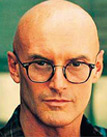
Ken Wilber 1949-
"If we talk about enlightenment as the union of emptiness and form, the pure emptiness doesn't change because it doesn't enter the stream of time. But the form does change, and the two of those are inextricably united. And therefore there is, in that sense, an evolution of enlightenment. And in the modern era when evolution itself is understood, which is to say when evolution became part of the consciousness of Spirit's manifestation, what we're seeing is an increasing transparency of enlightenment manifesting in the world of form.... It can be said very simply; obviously it's very hard to embody. But the basic rule is: Resting as emptiness, embrace the entire world of form. And the world of form is unfolding. It is evolving. It is developing. And therefore resting as blissful emptiness, you ecstatically embrace and push against the world of form as a duty.”
(What Is Enlightenment? Issue 21, 2002)
Ken Wilber — This contemporary American philosopher has done more than any other to bridge the spiritual gulf between the East and West.
The fulfillment of eschatological instruction promised by Jesus
An apocalypse (Greek: apokalypsis meaning “an uncovering”) is in religious contexts knowledge or revelation, a disclosure of something hidden, “a vision of heavenly secrets that can make sense of earthly realities.” (Ehrman 2014, 59)
“An apocalypse (Ancient Greek: apokalypsis ... literally meaning "an uncovering") is a disclosure or revelation of great knowledge. In religious and occult concepts, an apocalypse usually discloses something very important that was hidden or provides what Bart Ehrman has termed, "A vision of heavenly secrets that can make sense of earthly realities". Historically, the term has a heavy religious connotation as commonly seen in the prophetic revelations of eschatology obtained through dreams or spiritual visions.” Wikipedia 2021-01-09
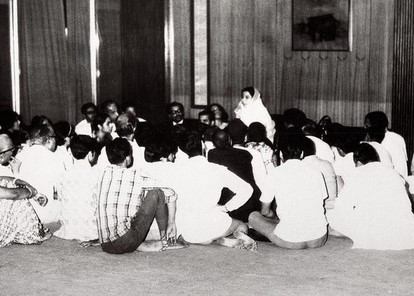
Total number of recorded talks 3058: Public Programs 1178, Pujas 651, and other (private conversations) 1249
“The Paraclete will come (15:26; 16:7, 8, 13) as Jesus has come into the world (5:43; 16:28; 18:37)... The Paraclete will take the things of Christ (the things that are mine, ek tou emou) and declare them (16:14-15). Bishop Fison describes the humility of the Spirit, 'The true Holy Spirit of God does not advertise Herself: She effaces Herself and advertises Jesus.' ...
It is by the outgoing activity of the Spirit that the divine life communicates itself in and to the creation. The Spirit is God-in-relations. The Paraclete is the divine self-expression which will be and abide with you, and be in you (14:16-17). The Spirit's work is described in terms of utterance: teach you, didasko (14:26), remind you, hypomimnesko (14:26), testify, martyro (15:26), prove wrong, elencho (16:8), guide into truth, hodego (16:13), speak, laleo (16:13, twice), declare, anangello (16:13, 14, 15). The johannine terms describe verbal actions which intend a response in others who will receive (lambano), see (theoreo), or know (ginosko) the Spirit. Such speech-terms link the Spirit with the divine Word. The Spirit's initiatives imply God's personal engagement with humanity. The Spirit comes to be with others; the teaching Spirit implies a community of learners; forgetful persons need a prompter to remind them; one testifies expecting heed to be paid; one speaks and declares in order to be heard. The articulate Spirit is the correlative of the listening, Spirit-informed community.
The final Paraclete passage closes with a threefold repetition of the verb she will declare (anangello), 16:13-15. The Spirit will declare the things that are to come (v.13), and she will declare what is Christ's (vv. 14, 15). The things of Christ are a message that must be heralded...
The intention of the Spirit of truth is the restoration of an alienated, deceived humanity... The teaching role of the Paraclete tends to be remembered as a major emphasis of the Farewell Discourses, yet only 14:26 says She will teach you all things. (Teaching is, however, implied when 16:13-15 says that the Spirit will guide you into all truth, and will speak and declare.) Franz Mussner remarks that the word used in 14:26, didaskein, "means literally 'teach, instruct,' but in John it nearly always means to reveal.” (Stevick 2011, 292-7)
The Holy Spirit as feminine: Early Christian testimonies and their interpretation,
Johannes van Oort, Radboud University, Nijmegen, The Netherlands
Department of Church History and Church Polity, Faculty of Theology, University of Pretoria, South Africa
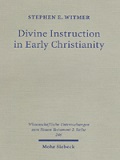
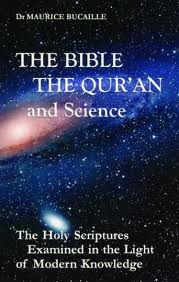
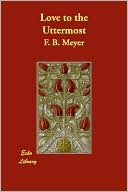
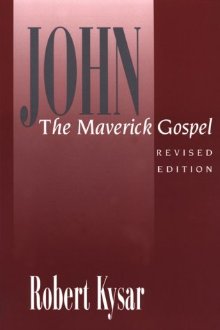
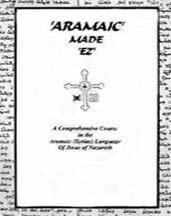
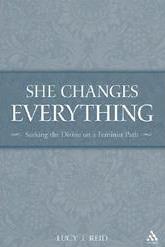
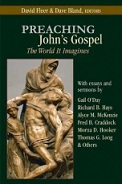
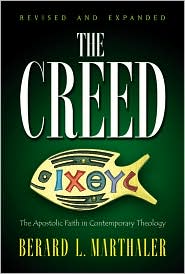
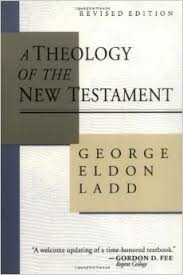
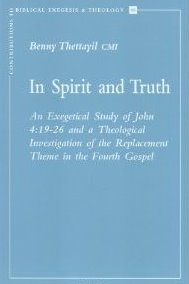

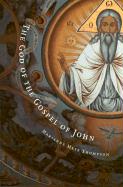
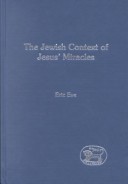
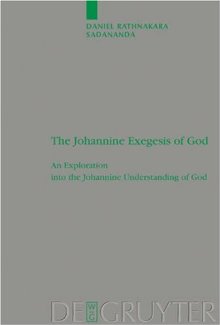

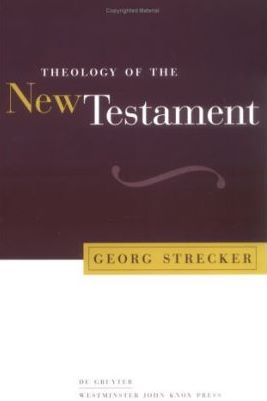

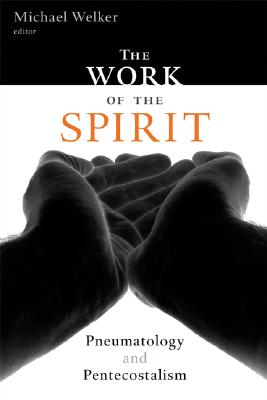
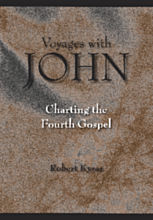
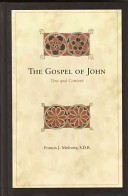
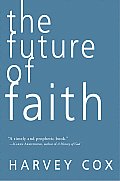
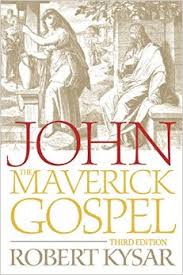
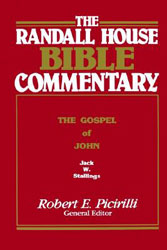

Stephen E. Witmer, Divine instruction in Early Christianity
“Jesus therefore predicts that God will later send a human being to Earth to take up the role defined by John .i.e. to be a prophet who hears God's words and repeats his message to man.”
M. Bucaille, The Bible, the Qur'n, and Science
“And when Jesus foreannounced another Comforter, He must have intended a Person as distinct and helpful as He had been.”
F. B. Meyer, Love to the Utmost
“The Paraclete has a twofold function: to communicate Christ to believers and, to put the world on trial.”
Robert Kysar, John The Meverick Gospel
“But She—the Spirit, the Paraclete...—will teach you everything.”
Danny Mahar, Aramaic Made EZ)
“Grammatical nonsense but evidence of the theological desire to defeminize the Divine.”
Lucy Reid, She Changes Everything
“The functions of the Paraclete spelled out in verses 13-15... are all acts of open and bold speaking in the highest degree.”
David Fleer, Preaching John's Gospel
“The reaction of the world to the Paraclete will be much the same as the world's reaction was to Jesus.”
Berard L. Marthaler, The Creed: The Apostolic Faith in Contemporary Theology
Bultmann calls the “coming of the Redeemer an 'eschatological event,' 'the turning-point of the ages.”
G. Ladd, A Theology of the New Testament
“The Paraclete equated with the Holy Spirit, is the only mediator of the word of the exalted Christ.”
Benny Thettayil, In Spirit and Truth
“The divine Paraclete, and no lessor agency, must show the world how wrong it was about him who was in the right.”
Daniel B. Stevick , Jesus and His Own: A Commentary on John 13-17
Stephen Smalley asserts that “The Spirit-Paraclete ... in John's Gospel is understood as personal, indeed, as a person.”
Marianne Thompson, The God of the Gospel of John
“The Messiah will come and the great age of salvation will dawn (for the pious).”
Eric Eve, The Jewish context of Jesus' Miracles
“The remembrance is to relive and re-enact the Christ event, to bring about new eschatological decision in time and space.”
Daniel Rathnakara Sadananda, The Johannine Exegesis of God
“The Spirit acts in such an international situation as the revealer of 'judgment' on the powers that rule the world.”
Michael Welker, God the Spirit
The Paraclete's “Appearance means that sin, righteousness, and judgment will be revealed.”
Georg Strecker, Theology of the New Testament
“While the Spirit-Paraclete is the true broker, the brokers they rely on are impostors.”
T. G. Brown, Spirit in the writings of John
“The pneumatological activity ... of the Paraclete ... may most helpfully be considered in terms of the salvific working of the hidden Spirit.”
Michael Welker, The work of the Spirit
“The pneuma is the peculiar power by which the word becomes the words of eternal life.”
Robert Kysar, Voyages with John
“The gift of peace, therefore, is intimately associated with the gift of the Spirit-Paraclete.”
Francis J. Moloney, The Gospel of John
“This utopian hope, even when modestly expressed, links Jesus and the prophets to a much wider history of human longing.”
Harvey Cox, The Future of Faith
“Because of the presence of the Paraclete in the life of the believer, the blessings of the end-times—the eschaton—are already present.”
Robert Kysar, John
“They are going, by the Holy Spirit's power, to be part of the greatest miracle of all, bringing men to salvation.”
R. Picirilli, The Randall House Bible Commentary
“The Kingdom of God stands as a comprehensive term for all that the messianic salvation included... is something to be sought here and now (Mt. 6:33) and to be received as children receive a gift (Mk. 10:15 = Lk. 18:16-17).”
G. Ladd, A Theology of the New Testament
Beliefs
By PETER STEINFELS JAN. 20, 2007
“The image of the God who judges in wrath has caused a great deal of spiritual damage," Professor Moltmann will be telling his listeners.
But he is not satisfied with the alternative that makes eternal destiny simply a matter of the individual's own choice of whether to reject God. In that case, Professor Moltmann says, the Last Judgment becomes no more than "the ultimate endorsement of our free will." God really has nothing much to do with it beyond implementing the human outcome; in short, "we are the lords, and God is our servant," he says.
The alternative, in Professor Moltmann's view, is to put Jesus Christ at the center of this final drama. "It is high time to Christianize our traditional images and perceptions of God's Final Judgment," he says.
Any Last Judgment with Christ at the center must answer the cries of human victims for justice, without simply meting out vengeance on the perpetrators of injustice, Professor Moltmann suggests. A Christian eschatological vision would involve not the retributive justice of human courts but "God's creative justice," which can heal and restore the victims and transform the perpetrators.
The goal of a final judgment, in this interpretation, is not reward and punishment but victory over all that is godless, which he calls "a great Day of Reconciliation." Professor Moltmann argues for the universal preservation and salvation not only of humans, as individuals and as members of groups, but also of all living creatures. It has been "a fatal mistake of Christian tradition in doctrine and spirituality," he argues, to emphasize the "end of the old age" rather than "the new world of God," the beginning of the "life of the world to come."
This resurrected life will be bodily and worldly, and its expectation, he says, should teach people to "give ourselves wholeheartedly to this life here and surrender in love" to its “beauties and pains.”
New York Times, Lessons for Living Found in Views of the Last Judgment
January 20, 2007
Disclaimer: Our material may be copied, printed and distributed by referring to this site. This site also contains copyrighted material the use of which has not always been specifically authorized by the copyright owner. We are making such material available to our readers under the education and research provisions of "fair use" in an effort to advance freedom of inquiry for a better understanding of religious, spiritual and inter-faith issues. The material on this site is distributed without profit. If you wish to use copyrighted material for purposes other than “fair use” you must request permission from the copyright owner.